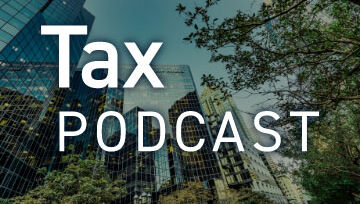Understanding the New Illinois Lease Tax Changes Effective 2025
Beginning January 1, 2025, Illinois will usher in significant legislative changes, impacting both the leasing of tangible personal property and certain out-of-state retailers. The new legislation revises the Retailers’ Occupation Tax, aligning Illinois with other states by imposing sales tax on lease streams instead of taxing lessors at the time of purchase.
Additionally, the state has updated its tax collection framework for out-of-state retailers, requiring those with a physical or economic presence to collect both state and local taxes based on the destination of sales. These changes aim to streamline tax processes and create a more equitable landscape for businesses operating within and outside Illinois.
New Illinois Tax on Leases Effective January 1, 2025
Illinois passed legislation making sweeping changes relating to the Retailers’ Occupation Tax on leases of tangible personal property, scheduled to go into effect on January 1, 2025.
Under the law effective until that date, Illinois was one of the few states that did not tax most leases of tangible personal property but had the lessor pay use tax at the time of purchase of the property that was to be leased. Under the new law, Illinois will match other states in allowing lessors to purchase the property exempt from tax but require them to charge sales tax on the lease stream as leases are now included in the definition of a sale.
How the Illinois Retailers’ Occupation Tax Is Transforming Lease Transactions
Under the new law, for purchases of property for rental purposes, lessors will be allowed to purchase property tax exempt by providing a modified version of the current Illinois resale exemption certificate to the seller. In charging tax to the lessee on the lease stream, if the lease does not require periodic payments or the lessee takes possession of the property at the lessor’s place of business, the lessor will use the origin sourcing rules under the Retailers’ Occupation Tax that are used for sales of tangible personal property.
For a lease that requires recurring periodic payments, each periodic payment is sourced to the primary property location for each period covered by the payment, as provided by the lessee in good faith. It should be noted that the tax required to be remitted for each tax return period is only the tax applicable to that part of the selling price actually received during that tax period.
Exemptions and Special Cases Under the New Illinois Lease Tax Law
There are some exemptions to the general rules under the new law, such as:
- Leases entered into merely as a security agreement that do not involve the transfer of possession or control from the lessor to the lessee
- Leases of titled property (e.g., motor vehicles, watercraft, aircraft, semitrailers)
- Rent-to-own transactions under the Rental-Purchase Agreement Act
- Computer software licenses that are exempt under a five-part test now codified (previously under regulation Ill. Adm. Code 130.1935)
- Rentals of property in the City of Chicago, which will become exempt for purchase by the lessor (except for the Chicago 1% home rule use tax)
Implications for Lessors: Navigating the New Tax Exemptions and Requirements
The legislation does not provide for any credit for purchases of property made by lessors prior to January 1, 2025, and leased after that date, which the Illinois Department of Revenue opposed. An existing credit that has been available to lessors since 1986 for lessors to take a credit when they stop using rental property for lease purposes and sell it is still available.
Law Change Effective January 1, 2025, for Certain Out-of-State Illinois Retailers
Effective January 1, 2025, Illinois has again changed the method by which Illinois retailers should be collecting local taxes. For many years, Illinois retailers without a location in the state and whose selling activities took place outside the state were able to collect use tax only at the state rate of 6.25%, without the collection of any local taxes.
As a result of protests from brick-and-mortar businesses in Illinois, which were required to collect the state and local taxes based on their location (i.e., origin), in 2021, Illinois enacted complicated rules for various categories of retailers to collect local taxes through the Level the Playing Field for Illinois Retail Act. The tax collection procedure has been modified again to simplify the process but create additional collection requirements for certain retailers.
Destination-Based Tax Collection: What Illinois Retailers Need To Know
Starting January 1, 2025, a retailer that has a location in Illinois, even if it has other selling activities that take place outside Illinois or ships products from outside the state, will be required to collect the state tax and the local tax based on the destination of the shipment. Destination is defined as the Illinois location to which the tangible personal property is shipped, delivered or at which possession is taken by the purchaser.
Previously, these retailers were not required to collect local taxes but only the 6.25% state tax rate under the use tax. This change is consistent with the current requirement, in effect since 2021, that retailers and marketplace facilitators that have no location within the state, no selling activities that occur within the state, and ship products from outside the state but meet the economic nexus threshold must collect the state tax and local Retailers’ Occupation Tax based on destination.
With the change in the law, all retailers with physical or economic nexus in Illinois selling to Illinois customers will now be required to collect state and local taxes under the Retailers’ Occupation Tax. Only retailers that have a location in Illinois and deliver their product from within Illinois will be collecting the state rate and the local tax rate based on the origin of the sale. All other retailers will collect tax at the full destination rate.
Your Guide Forward
Navigating the complexities of the new Illinois tax legislation can be challenging, but Cherry Bekaert’s Sales and Use Tax team is here to guide you. Our team offers strategies for compliance and to optimize your tax position, from managing exemption certificates to applying the correct sourcing rules. We also provide assistance for out-of-state retailers affected by the new regulations. Contact us today so your business is ready for the changes and positioned for success.





